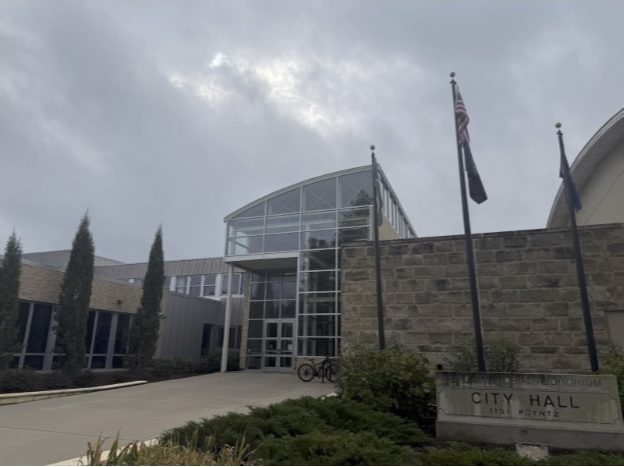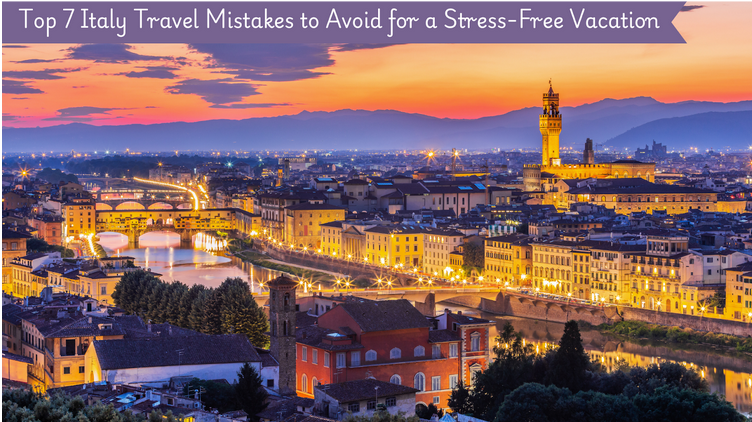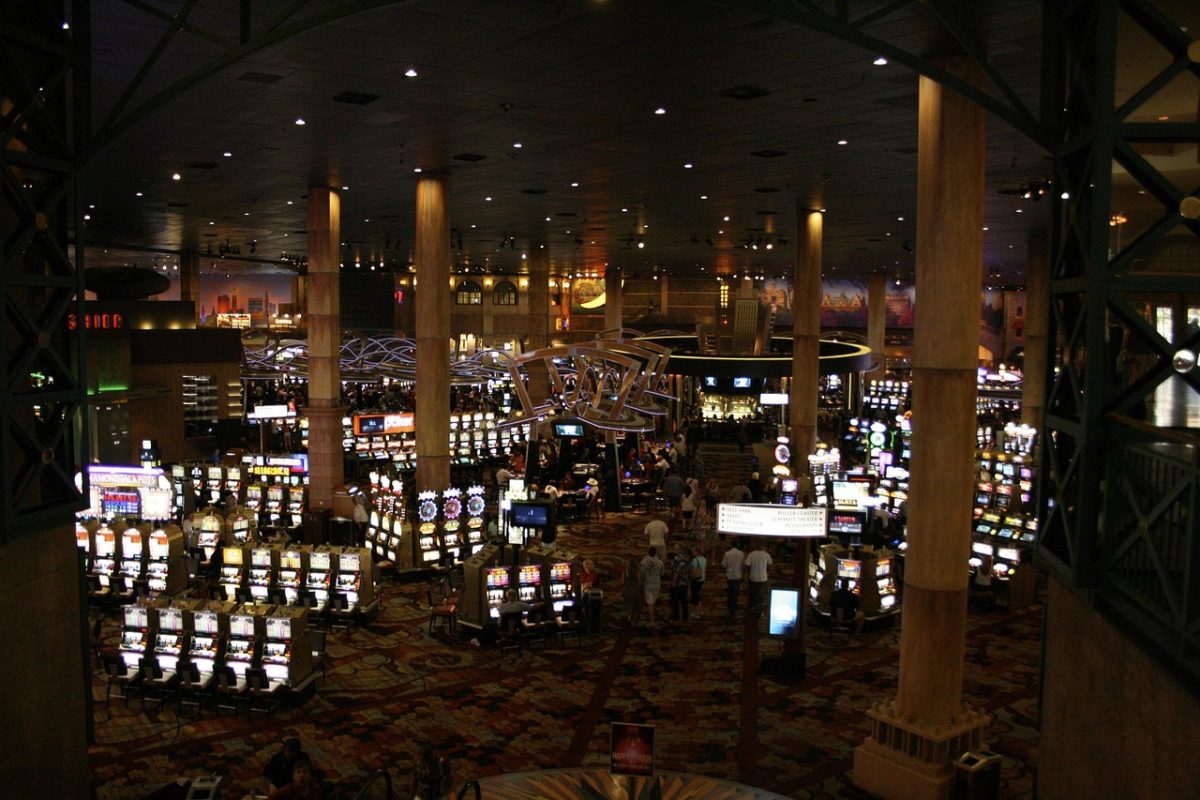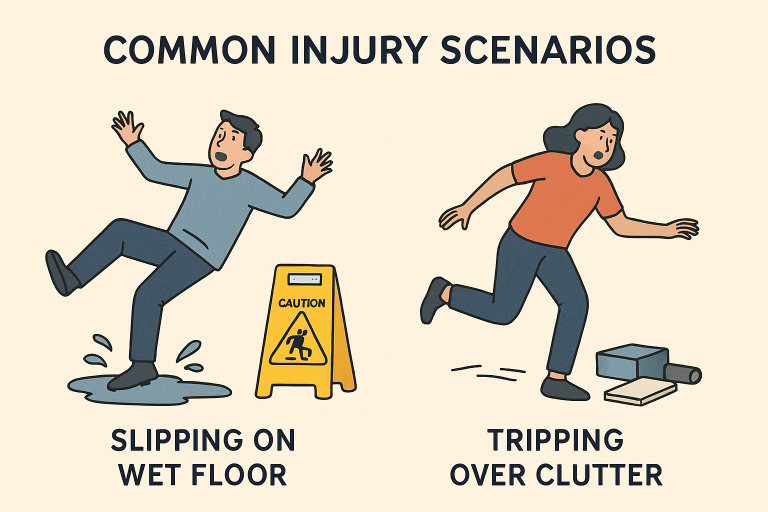Do you know that around 8.1 million foreign tourists arrived in Italy in May 2024, including both same-day and overnight visits?
Arriving in Italy excitedly, only to face long lines, cultural misunderstandings, and transport problems, can be frustrating. To have a smooth and enjoyable trip, avoid common issues like overplanning and not knowing local customs. Here’s a guide to the top 7 mistakes to avoid for a better Italian experience.
1. Overloading Your Itinerary
One of the biggest mistakes travelers to Italy make is trying to fit too much into their schedule. While it is tempting to see all of the beautiful country, overloading your schedule invites exhaustion and dampens the overall enjoyment of your trip.
Italy is famous for its easy pace of life and love of free time. Hurrying from object to object contradicts the very meaning of Italian culture. For a fulfilling experience, the tour of Italy trip should last for at least 10 days to comfortably see the main cities, allowing time for both sightseeing and rest.
To avoid getting too tired on your Italian holiday and to enjoy your stay in this beautiful country as much as possible, consider these strategic planning tips:
- Include in the program time for rest and flexible time.
- Book skip-the-line tickets for places that have a lot of visitors, which allows for saving time.
- Leave some time for spontaneity, free exploration, and making accidental discoveries.
- Give preference to qualitative experiences over the number of sights covered.
- The more leisurely the pace of the journey, the more pleasant the whole trip will be, and the better the feel for the Italian rhythm of life.
2. Neglecting Local Customs and Etiquette
Not being sure about local customs and etiquette can get a person tongue-tied in some situations, while sometimes such unfamiliarity unintentionally offends the locals. Interpreting and respecting Italian traditions will make traveling more enjoyable and instill friendly behavior toward residents.
For example, some important customs to know include:
- Dress codes for churches: dress modestly
- Covering your shoulders and knees
- Dining etiquette-Italians eat dinner rather late in the evening, around 8 to 9 pm
- Greetings are with a handshake, common for first meetings, while close friends and family greet with pecks on both cheeks.
Before traveling, try reading some travel blogs and guidebooks about Italian culture, watch some documentaries or videos about the Italian lifestyle and traditions, and participate in online forums or social media groups for people traveling to Italy.
You can also be respectful by learning basic phrases in Italian. All it takes to learn these customs will not only avoid potential mistakes but will further your appreciation of Italian culture.
3. Ignoring Transportation Nuances
Using the transportation system in Italy can be tricky if this is a traveler’s first time in the country, and misunderstandings with local transit options can cause unnecessary stress, wasted time, and even fines.
Ways of avoiding the most frequent mistakes that tourists make when getting around on public transportation include:
- Informing yourself about the local transport system before arriving.
- Buying the right type of ticket for your journey and validation before traveling by bus or train.
- Stay informed about strike dates that may affect public transportation schedules.
While renting a car might give flexibility, it comes with its challenges. Most Italian city centers have restricted car access through the introduction of Limited Traffic Zones, popularly known as ZTLs, and entrance into such areas will result in heavy fines. Parking cars in urban areas is normally difficult and costly while driving in the cities can be chaotic and stressful for tourists.
- Underestimating the Importance of Reservations
Wait times and disappointment might result from not making reservations, especially in Italy during the busiest travel seasons. Reservations are essential for eating, especially at well-known or Michelin-starred establishments. Buying tickets online might save you time in line.
It’s best to plan lodging several months in advance and book tickets for major attractions as soon as your vacation dates are confirmed. This is particularly important during the summer season, from June to August.
Making all of the required bookings in advance will guarantee a more seamless and pleasurable trip to Italy.
5. Mismanaging Money and Budget
Poor decisions with money can turn a dream vacation into a nightmare. For this reason, proper money management is the key to a stress-free Italian vacation. To avoid headaches with money, inform your bank of the places you will be traveling and the dates to keep them from blocking your cards.
Carry both cash and credit cards for convenience, and be aware of any potential foreign transaction fees. Use bank-affiliated ATMs for better exchange rates.
Italy tends to be a rather expensive country once you start hitting the main touristy areas. Research typical costs for meals, attractions, and transportation in advance, so you can plan your spending accordingly.
Set yourself a reasonable daily budget and take into account any extra money for things that may pop up along the way. If possible, get yourself a city pass for access to cheap entry into attractions and public transport. Save money by opting for free activities or attractions in cities.
6. Overlooking Regional Differences
There are many different areas in Italy, and each has its distinct customs, food, and culture. Ignoring these distinctions might result in lost chances and a less genuine experience. Northern Italy, for instance, is renowned for its affluent towns, breathtaking Alpine scenery, and substantial food.
Southern Italy is known for its relaxed atmosphere, stunning coastline, and Mediterranean flavors, while Central Italy is famous for Renaissance art, rolling hills, and renowned Tuscan wines.
Arrange your trip such that you visit a variety of regions to truly appreciate Italy’s regional uniqueness. To improve your experience, learn about local events and specialties. For effective interregional travel, think about taking high-speed trains, and give yourself enough time to become used to the different speeds and traditions of each location.
7. Failing to Learn Basic Italian Phrases
While many Italians in tourist areas speak English, making an effort to learn some basic Italian can significantly enhance your travel experience.
Knowing a few key phrases can help you navigate public transportation more easily, order food and drinks with confidence, and show respect for local culture and customs. It also allows you to connect with locals on a more personal level.
Essential phrases to learn include,
- “Grazie” (Thank you)
- “Per favore” (Please)
- “Scusi” (Excuse me)
- “Parla inglese?” (Do you speak English?)
- “Non capisco” (I don’t understand)
By incorporating these simple expressions into your interactions, you’ll enrich your Italian journey and foster more meaningful connections with those you meet.
Frequently Asked Questions
- What is the best payment method in Italy?
In Italy, contactless payments are generally accepted and credit/debit cards (Visa, Mastercard) are the best ways to make payments. Even in smaller communities and for minor transactions, cash is still widely utilized.
- How does traveling affect people?
By exposing people to different places and experiences, travel deepens awareness of cultures, expands viewpoints, and promotes personal growth. In addition, it can enhance mental health, foster creativity, and lower stress. However, frequent travel may cause exhaustion or jet lag.
- What precautions do you take while traveling?
It’s crucial to protect your vital documents, heed local safety advice, and use reliable transportation. In addition, make sure you have the right travel insurance, keep valuables close to hand, and refrain from giving personal information.
Get Ready to Explore a Flawless Trip?
While visiting Italy is an unforgettable adventure, you may minimize worry and maximize enjoyment by avoiding these typical blunders. An authentic, fulfilling Italian experience can be achieved by understanding the local way of life, respecting customs, making reservations and transportation well in advance, budgeting wisely, understanding regional differences, and making a small effort to learn the language.
Always remember that striking the right balance between preparation and spontaneity is key to a successful trip.



























































































































